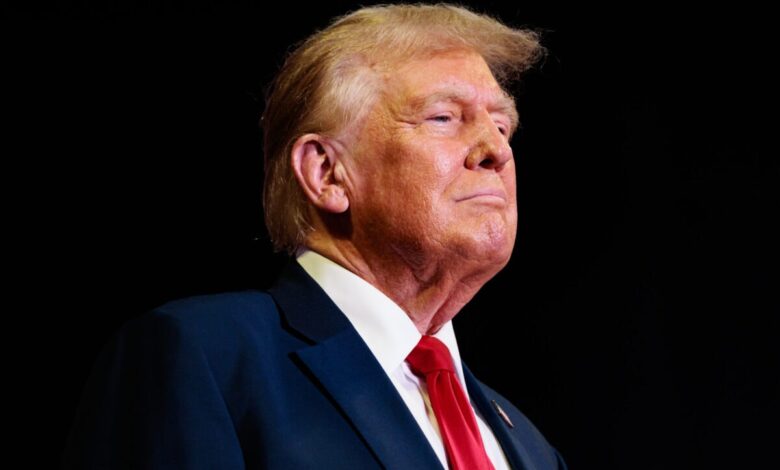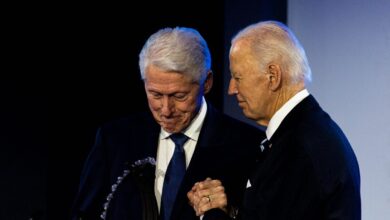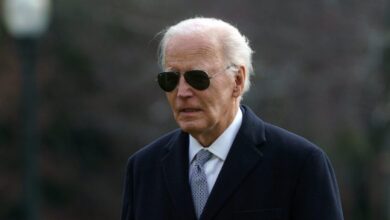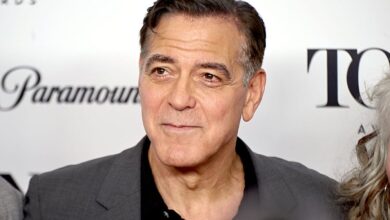Supreme Court Rules Trump Has Immunity For Official Acts, Likely Delays Trial Past Election

The Supreme Court issued a ruling on Monday that Donald Trump‘s claim of presidential immunity to shield himself from federal prosecution is valid for official acts, but not for unofficial conduct, in a partial victory for the former president.
Justices voted 6-3 along ideological lines in the decision and sent the case in which Trump pleaded not guilty to charges accusing him of unlawfully plotting to overturn the results of the 2020 election back to a lower D.C. court for further review.
“The President is not above the law,” the ruling said. “But under our system of separated powers, the President may not be prosecuted for exercising his core constitutional powers, and he is entitled to at least presumptive immunity from prosecution for his official acts.”
Because the ruling was released so late — on the final day of the term — the Associated Press noted the justices “reduced” or “eliminated” the chances of a trial being held before the November election. And the case may already be weakened by a prior ruling that found the Justice Department went too far with January 6-related obstruction charges.
“BIG WIN FOR OUR CONSTITUTION AND DEMOCRACY. PROUD TO BE AN AMERICAN!” Trump exclaimed in a post to Truth Social after the ruling.
The case now returns to U.S. District Judge Tanya Chutkan for determining what constitutes official acts. Yet even if some charges against Trump make it to trial, the high court’s ruling posed further complications for prosecutors.
Any testimony or records of the president or his advisers “probing” conduct immune from prosecution “may not be admitted as evidence at trial,” Chief Justice John Roberts wrote in the majority opinion. Conservative Justice Amy Coney Barrett concurred with most of the opinion but disagreed with the restriction on introducing protected conduct as evidence, saying there was “no need to depart” from the “familiar and time-tested procedure here.”
All three liberal justices opposed the ruling. In her dissent, Justice Sonia Sotomayor suggested the majority’s reasoning would allow a president to get away with ordering the Navy’s SEAL Team Six to assassinate a political rival, organizing a military coup to stay in power, and taking a bribe in exchange for a pardon. “With fear for our democracy, I dissent,” she wrote.
Trump’s lawyers filed to dismiss the case in October of last year by asserting that the former president’s actions were “within the heartland” of his “official duties.” Federal prosecutors, led by special counsel Jack Smith, argued that the defense’s immunity argument threatened to give presidents a “license” to commit crimes while in office.
Chutkan, an appointee of former President Barack Obama, had spurned Trump’s immunity claim, saying the defendant’s “four-year service as Commander in Chief did not bestow on him the divine right of kings to evade the criminal accountability that governs his fellow citizens.”
A federal appeals court panel also rejected the immunity argument in an early February ruling. By the end of the month, the Supreme Court agreed to take up the question. Chutkan had set the trial to start on March 4 — one day before Super Tuesday — but that plan fell by the wayside. The high court heard arguments in April.
Last year, in December, the Supreme Court denied a bid by federal prosecutors to fast-track consideration of the immunity claim, arguing that a quick resolution to allow a trial to proceed was of “imperative public importance.” Trump’s defense lawyers said the question should be considered in a “cautious, deliberative manner.”
CLICK HERE TO GET THE DAILYWIRE+ APP
Trump has faced three other criminal matters during his 2024 campaign, including another case led by Smith over the former president’s handling of classified documents, as well as civil litigation. Attorneys for Trump cited presidential immunity in a request to dismiss the documents case in which the judge has indefinitely postponed the trial.
In a New York hush-money case, a jury convicted Trump on all counts. Sentencing is scheduled for July 11, just days before the GOP convention. Trump vowed to appeal. A case in Georgia that also relates to the 2020 election has been paused, likely until after the 2024 contest, as Fulton County District Attorney Fani Willis fights to stay involved.




